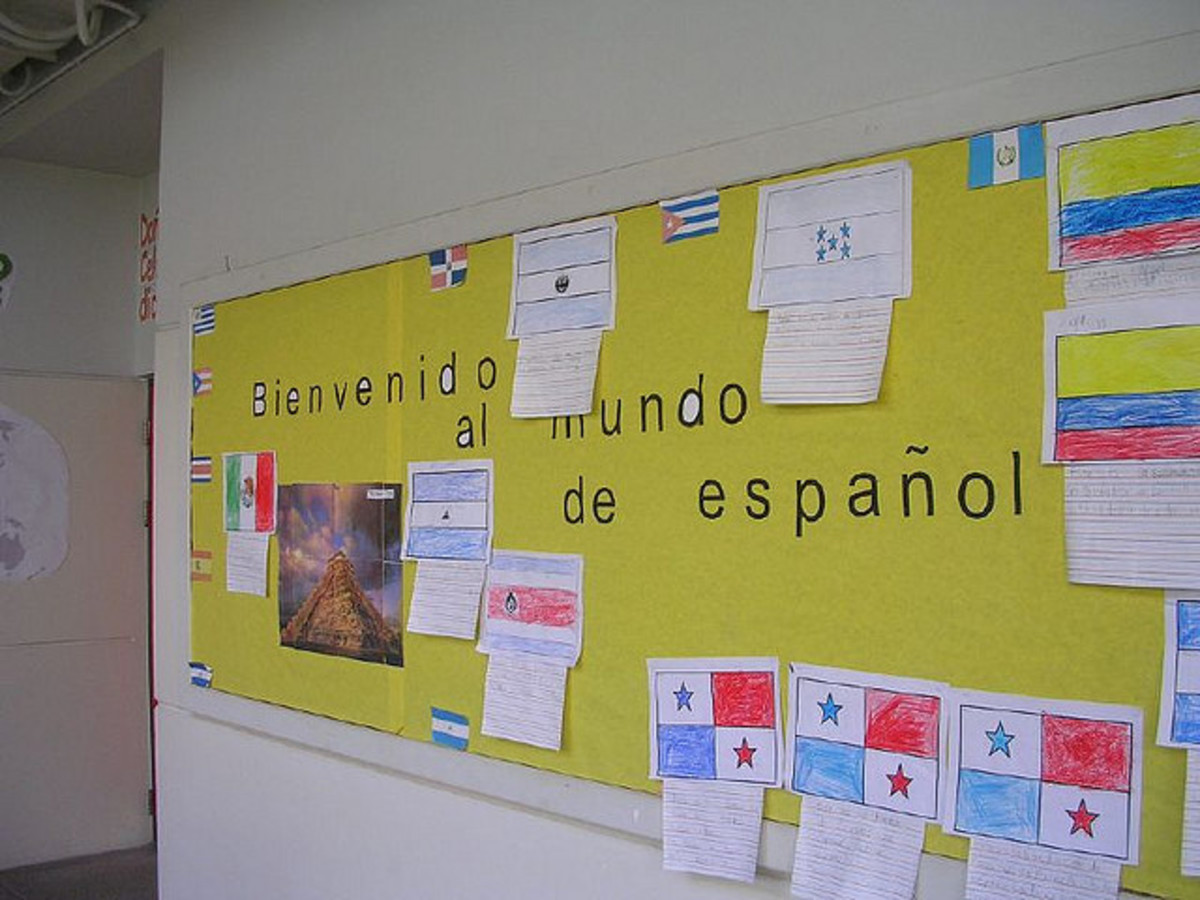Tips on How to Become Fluent in Spanish
Skyline of Buenos Aires

Why Should I learn Spanish?
From the financial perspective, knowing a second language can get you financial benefits in your job or even a promotion and open other doors for you like the opportunity to work in a foreign country with a higher salary. Companies with Spanish-speaking employees could offer their products and services to 350 million Spanish native speakers around the world which represents an interesting growth potential. Another interesting fact is that the US is going to be the largest Spanish-speaking country in the world by 2050. The Cuban writer Humberto López Morales stated that every minute, 2.5 Hispanics enter the US which amounts to 3,700 people per day. This means they represent a significant marketing opportunity. The average income of Hispanics amounts to annually $38.039 (in 2009) in the US, which gives Hispanics an interesting purchasing power. The number of Hispanic-owned businesses increased by 43.6% between 2002 and 2007 according to the US Census Bureau. There are 79,440 Hispanic chief executives, 50,866 physicians and surgeons, 48,720 postsecondary teachers, 38,532 lawyers and 2,726 new analysts, reports and correspondents. Last but not least, it is worth mentioning that 1.1 million is the number of Hispanic veterans of the US army.
From the linguistic perspective, you will be able to improve your English speaking and writing skills by learning Spanish as you will be learning language structures and grammar in the foreign language through which you will get conscious about the way your native language is structured. Many people who started learning a foreign language were automatically improving their native language skills. Only because you are a native speaker doesn’t mean you are a good speaker of the language.
Beach Sunset in Cuba

Some Interesting Facts about the Spanish Language
- Spanish is spoken in 21 countries
- It is the second most studied language in the world
- After English and Mandarin it is the third most widely spoken language in the world
- Over 400 million people worldwide speak Spanish
- In the US, Spanish has become a 2nd unofficial language
Endangered Puerto Rican Parrot

Where Can I Learn Spanish?
While there are many language schools in the US you can go to to learn Spanish, it is becoming more and more popular to learn Spanish online. There are a great variety of websites where you can find self-studying courses as well as native Spanish teachers who teach you through Skype or a virtual classroom.
This website is great for learning the pronunciation of letters and words in Spanish. There are oral exercises where a Spanish native speaker clearly pronounces the words and you have the opportunity to repeat them. You can create your own personalized vocabulary quizzes and learn how to pronounce and write them. This feature is really nice. The website also provides the complete grammar theory and lessons in which you learn vocabulary according to themes.
This website is great for beginners and beginners with basic knowledge. You can participate in the Mi Vida Loca post-beginner’s course, a Spanish interactive course that takes you to Madrid where you can learn how to greet people, book a hotel, shop for food and ask people for information and give directions. You can even subscribe to the Mi Vida Loca Newsletter that are sent to you weekly with tips on how to successfully learn Spanish. The Mi Vida Loca course that you can complete in 12 weeks after which you will receive a BBC certificate.
“Spanish Steps” is a course for beginners, which consists of different lessons that also include interactive material as well as audio exercises with transcripts and the possibility to show the translations of sentences and phrases in English. You will learn vocabulary related to food, transport, shopping, working, leisure time and going out.
The BBC Website even offers a Spanish Course for kids on which your child can learn the Spanish pronunciation, the numbers, food & drinks by listening to sounds, playing games and watching videos. These lessons are great for kids in kindergarten and primary school.
The BBC Website even has lessons on the Spanish slang with audio to help you pronounce it and transcripts to help you write it.
For those wanting to go on vacation to a Spanish-speaking country, you can learn useful phrases in the Spanish - Quick Fix Section.
This website provides a Spanish Verb Conjugation Trainer with which you can learn regular as well as irregular verbs in the present tense, preterite, imperfect, future tense and all the subjunctive forms as well as the conditional.
LoMásTv is a Spanish immersion TV that provides videos with Spanish native speakers from all of the different Spanish-speaking countries of the world. The video lessons are a great way to enhance your Spanish accent or learn a specific accent from a certain region or country. The videos include telenovelas, news, music videos, documentaries, interviews, action series and much more. Although a few videos can be watched for free you have to subscribe and pay a fee to get access to all of the website’s videos in all categories. However, paying the fee is definitely worth it. While watching the videos, you can look up words in the website’s own dictionary, see the subtitles in English as well as Spanish, slow down the audio and have the native speakers reduce their speaking speed and play an interactive listening game. It is fun, you can choose the topic of your interested and you will definitely be able to enhance your comprehension skills.
On this website, you can find online TV channels from all over the world including all Spanish speaking countries, whether you are interested in Argentinean, Bolivian, Costa Rican, Spanish or Venezuelan TV. Categories include regional TV channels, sports, news, entertainment, culture, music and much more. You might find it difficult at first and have a hard time understanding what is being said but the key is not giving up. You cannot expect to learn a language in a week.
Puente de Alcántara, Cáceres, Spain

Learn with a Live Tutor
The best way to learn Spanish, however, is learning with a real native teacher in a life lesson. Native teachers can actively correct your pronunciation, give you useful feedback and Nowadays, many prefer taking lessons over Skype as you can learn from the comfort of your home or even in the office without losing valuable time to go to the language school or even spend more money on a language course in a foreign country. There are various websites that provide lessons with native teachers such as:
- VerbalPlanet (native teachers from all Spanish-speaking countries)
- Learnship (native teachers from all Spanish-speaking countries)
- Myspanishschool (native teachers from Ecuador)
- Livemocha (tutors from Spain, Peru, Venezuela and Mexico)
Salto Angel, Venezuela

You Might Also Be Interested in:
- The Things I will Miss and Not Miss about Living in Argentina
- The Benefits of Learning a Language Online
- How to Become Fluent in German
- How to Become Fluent in French
- How to Become Fluent in Mandarin Chinese
International companies are increasingly looking for skilled employees with Chinese skills who are willing to relocate to China. In addition, China is one of the most important trading partners of the US and China is regarded as a huge business oppor
10 Useful Tips on How to Become Fluent in Spanish
1. Concentrate equally on reading, writing, listening and speaking
2. Study a couple of minutes every day (rather than 2 hours once a week). Persistence and regularity are the key to learning to speak a foreign language
3. Use a variety of sources (you will find some useful sources above)
4. Watch TV, listen to the radio, study grammar, study vocabulary and sentence structures
5. Repeat, repeat and repeat what you learned
6. Listen to Spanish native speakers as often as possible (watch Spanish television, do audio exercises and talk to your tutor)
7. Write Spanish texts and send them to your tutor
8. Plan a trip to a Spanish-speaking country and talk to the natives
9. Make flash cards with useful phrases and vocabulary and take the flash cards to your office (you can spare 10 minutes of your working day to study vocabulary)
10. Talk to Spanish speakers on MyLanguageExchange: You can talk to people from all over the world and write emails with them or talk to them on Skype. They can teach you slang and colloquialism that you will not learn in a classical language course.









